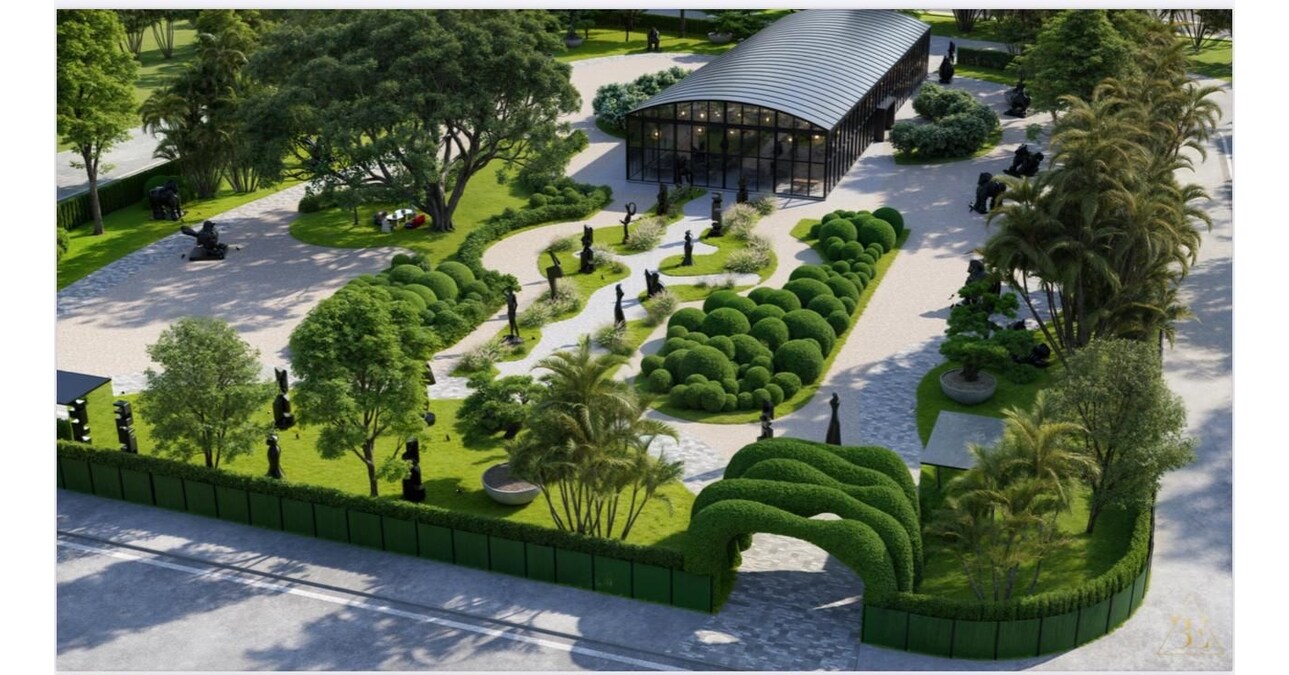Look Ahead at 2024: Arab world enters the new year with a mix of hope, tension and trepidation
IRBIL, Iraqi Kurdistan: As 2023 moves into the rearview mirror, the Middle East and North Africa can look ahead to the new year with a mixture of hope and trepidation.
For many in the region, it has been a tumultuous 12 months, featuring some of the worst violence and natural disasters in years.
While several conflicts are likely to continue into 2024, not least in Gaza and Sudan, there are some positive signs for the new year.
Unified GCC visa
Over in the Arabian Gulf, travelers may soon be able to apply for a unified Gulf Cooperation Council visa.
Unveiled in October by Abdulla bin Touq, the UAE minister of economy, the single visa will permit travelers to visit all six members of the Gulf alliance — Bahrain, Kuwait, Oman, Qatar, Saudi Arabia and the UAE.
The new travel permit is billed as the Gulf’s equivalent of the European Schengen visa, with the potential for transforming the region’s travel, tourism and hospitality industries.
New BRICS members
The five-member intergovernmental organization BRICS, often touted as a rival to the G7 bloc, could expand.
At the bloc’s summit in South Africa last August, Saudi Arabia, the UAE, Egypt, Iran, Ethiopia, and Argentina were invited to join Brazil, Russia, India, China, and South Africa as part of the trading body of emerging economies.

At the time, Prince Faisal bin Farhan, the Saudi foreign minister, said that the Kingdom was studying the proposal and could become a leading member of the bloc, given its vast resources and strategically important location.
The group has set its sights on a new, multipolar world, in which financial and political institutions are no longer dominated by a few Western powers. However, Riyadh is yet to give a definitive answer, while Argentina’s incoming government has ruled out joining.
Time will tell whether BRICS will expand as planned.
Israel-Hamas war
Israel has been engaged in an unprecedented war against Hamas in the Gaza Strip, triggered by the killing by Palestinian militants of at least 1,200 people and abduction of another 240 on Oct. 7.
Israel’s retaliatory operations have pulverized swathes of Gaza, killing more than 20,000 people and injuring another 50,000 — 70 percent of them women and children, according to the Hamas-run Health Ministry — causing a dire humanitarian crisis.

Despite efforts to secure another temporary ceasefire, the conflict is likely to continue into 2024.
Yoav Gallant, the Israeli defense minister, has repeatedly warned that the operation will take “months” to conclude and that Israel will “not stop until we reach our goals.”
Meanwhile, Hamas has said it is unwilling to negotiate the release of additional hostages until Israel ceases operations in Gaza.
While these obstacles remain, the war will likely continue into the new year.
Leadership changes
The Oct. 7 attack led by Hamas militants was a massive political setback for Benjamin Netanyahu, the Israeli prime minister, who has long depicted himself as the guardian of the nation’s security.

Although it is unlikely he will be replaced while the war in Gaza continues, there is a chance he will be voted out of office once it ends. One recent poll found just 27 percent of Israelis believe Netanyahu is fit to serve as prime minister.
Briefly voted out of office in 2021, Netanyahu returned to power in late 2022, leading the most right-wing Israeli government in history.
He then went on to push through an unpopular judicial overhaul that led to massive protests in 2023 and threats of desertion by military personnel. It is likely that 2024 will be his last year in office.
This section contains relevant reference points, placed in (Opinion field)
It may also be the year that Iran’s 84-year-old supreme leader, Ayatollah Ali Khamenei, relinquishes power in the Islamic Republic.
Amid rising regional tensions, the country may end up under the control of his 54-year-old son, Mojtaba, to ensure the continuation and survival of the clerical regime that has ruled Iran since the 1979 revolution.
Grand Egyptian Museum opening
In the first quarter of 2024, Egypt hopes to finally open the long-awaited Grand Egyptian Museum, situated near the Giza pyramid complex on the outskirts of Cairo.
After 20 years of planning and $1 billion in spending, the largest archaeological museum on the planet will feature more than 100,000 artifacts from Egypt’s ancient civilization, many of which have never been displayed in public before.

Sudan deterioration
Sudan has been plagued by violence since fighting broke out between the Sudanese Armed Forces and the paramilitary Rapid Support Forces on April 15.
A total of 6.3 million people have been displaced since April alone, adding to the 3.7 million Sudanese who had already fled their homes during previous conflicts, along with 1.1 million foreigners who had earlier sought refuge in Sudan.
More than 1.4 million Sudanese have sought shelter in neighboring countries since the onset of the conflict. With no end in sight, the conflict in Sudan will undoubtedly continue into 2024, and possibly beyond.
Sudan has topped the International Rescue Committee’s 2024 Emergency Watchlist of “countries most likely to experience a deteriorating humanitarian crisis” due to the “escalating conflict, mass displacement, an economic crisis and a near collapse of health care services.”

Hindu temple in Abu Dhabi
The first Hindu temple in the UAE capital, Abu Dhabi, is set to open in February. The temple will be inaugurated by Narendra Modi, the Indian prime minister, after seven deities are consecrated and blessed in special morning prayers.
Modi had launched the project in 2018 when he revealed the first model showing a monument with seven spires to reflect the seven emirates. Sculpting work began in 2020 and the temple’s distinct shape and carved pink stonework nowsoar from the desert landscape.
The hand-carved structure is being constructed on more than 5.4 hectares of land given to the Indian community in 2015 by President Sheikh Mohamed bin Zayed when he was the crown prince of Abu Dhabi.
Yemen settlement
There are hopes that the truce between the Houthi militia and the Coalition to Restore Legitimacy in Yemen could become a permanent ceasefire agreement in 2024.
A two-month UN-negotiated truce came into effect in April 2022 and formally ended the following October. However, hostilities did not recommence.

Saudi Arabia praised the “positive results” of negotiations with the Houthis in September after a visit by a delegation from the group.
However, since the eruption of the Israel-Hamas conflict in Gaza, the Houthi militia has intensified its attacks on commercial shipping in the Red Sea.
While this has caused additional tensions, it is widely expected to delay rather than scuttle a ceasefire agreement that could lead to a lasting settlement to the Yemen conflict.
Iran nuclear enrichment
Another issue that is likely to continue into 2024 is the advancement of Iran’s nuclear program.
Iran continued to stockpile uranium enriched to 60 percent throughout 2023, giving Tehran the capacity to quickly enrich this material to weapons-grade levels of about 90 percent.

In December, Hossein Amir-Abdollahian, Iran’s foreign minister, dubbed any attempt to revive the 2015 nuclear deal, which put restrictions on the Iranian nuclear program in return for sanctions relief from the West, a “useless” endeavor.
Iran has “increased its production of highly enriched uranium, reversing a previous output reduction from mid-2023,” the International Atomic Energy Agency said in a statement in December summarizing a recent confidential report to member states.
Water and food security
The Middle East and North Africa will continue to grapple with water and food security issues in 2024, with Iraq being particularly vulnerable.
Climate change and regional tensions have reduced river and groundwater levels, especially in the country’s more arid south. The UN considers Iraq the world’s fifth most climate vulnerable country.

The most populous Arab country has faced increasing food security issues over the past 12 months, which will likely drag on into 2024.
Egypt has relied heavily on imported wheat, becoming the biggest importer in the world in recent years in order to feed its population, particularly its poor, who are dependent on subsidies.
Two developments in 2023 in particular have compounded Egyptian food security concerns: Russia’s withdrawal from the UN- and Turkiye-brokered Black Sea Grain Initiative and India’s decision to impose restrictions on the export of non-basmati varieties of rice and other food staples.
GERD dam divide
Egypt and Ethiopia are likely to remain locked in a simmering dispute over the Grand Ethiopian Renaissance Dam. Years of stop-start talks over the shared management of the Nile river have proved unsuccessful, making open conflict a real possibility.

Egypt has long opposed Ethiopia’s dam project because of concerns over its water supply. Sudan, another downstream country, has likewise expressed worries about the regulation of its own water supplies and dams.
Ethiopia, which argues that it is exercising its right to economic development, said in September it had completed its final phase of filling a reservoir for a massive hydroelectric power plant at the dam on the Blue Nile.
In December, Egypt said that the latest talks had also failed, but it would continue to monitor the process of filling and operating the dam.
Captagon trade persistence
The many challenges posed by the illicit trade in the stimulant commonly known as Captagon are expected to continue into 2024.

Syria is estimated to produce about 80 percent of the world’s supply of the narcotic, exporting it across the Middle East, with a particular focus on the Gulf market.
According to Western governments, Captagon exports net sanctions-squeezed Damascus billions of dollars in much-needed revenues each year.
Regional governments have intercepted several massive shipments of the drug, often making busts of hundreds of thousands or even millions of pills.
On Dec. 18, Jordan launched several cross-border air raids against Syria, targeting hideouts of drug smugglers.








